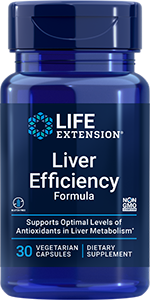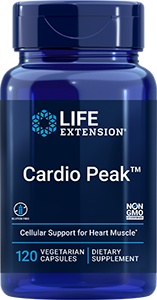Metformin shows anticancer effect in early breast cancer patients
Tuesday, July 23, 2013. The results of a study of the diabetes drug metformin in nondiabetic women with early breast cancer indicate that the drug may provide an anticancer effect in addition to other benefits when given during a "window of opportunity." The findings were reported in the October 2012 issue of the journal Breast Cancer Research and Treatment.
The study included 39 women whose core biopsy results were diagnostic of operable invasive breast cancer. Participants received 500 milligrams metformin three times per day for a period of 13 to 40 days up to the evening prior to tumor excision. Blood samples collected before and after treatment with metformin were analyzed for insulin and other factors. Tumor characteristics, including staining for Ki67, a protein associated with cellular proliferation, and TUNEL (terminal deoxynucleotidyl transferase dUTP nick end labeling), an indicator of programmed cell death (apoptosis), were evaluated in the biopsy samples and excised tumors.
Body mass index, weight and insulin resistance decreased significantly among the participants by the end of the treatment period. Ki67 staining in invasive tissue was reduced following treatment with metformin, indicating a reduction in proliferation. Furthermore, TUNEL staining increased, which demonstrated an increase in apoptosis. "Our observations suggest that changes in Ki67 and TUNEL may be mediated, at least in part, by an improvement in factors associated with insulin resistance; they suggest that metformin may impact breast cancer through indirect effects on host (patient) physiology," Pamela J. Goodwin of the University of Toronto and her associates write. "However, additional direct (insulin and glucose independent) anti-tumor effects of metformin cannot be excluded."
"To our knowledge, this is the first study to report an increase in apoptosis in breast cancer associated with the use of metformin in the neoadjuvant setting," they announce. "Short-term preoperative metformin was well tolerated and resulted in clinical and cellular changes consistent with beneficial anti-cancer effects; evaluation of the clinical relevance of these findings in adequately powered clinical trials using clinical endpoints such as survival is needed." |
 |
|
The journal Cancer Epidemiology, Biomarkers & Prevention published an article on June 10, 2013 which reports a benefit for the antidiabetic drug metformin in colorectal cancer survival.
The study involved 3,816 men and women with stage I-III colorectal cancer diagnosed between 2001 and 2006, including 207 diabetics who had been prescribed metformin, 108 diabetics who did not use the drug and 3,501 nondiabetics. The subjects were followed through 2010, during which 196 deaths occurred among those with diabetes, and 1,897 occurred among the nondiabetics. Among the diabetic patients, 93 deaths were due to colorectal cancer, and 1,082 nondiabetic deaths were attributable to the disease.
When subjects treated with metformin were compared to diabetics who did not use the drug, a reduction in the risk of death due to colorectal cancer that "approached significance" was observed. However, those whose use of metformin was categorized as high intensity (higher dose), had a 56% lower risk of dying of the disease than diabetics who did not use the drug. Metformin use was additionally associated with a 31% lower adjusted risk of dying from any cause among diabetic subjects over follow-up.
"This study is the first, to the authors' knowledge, to assess the presence of an exposure response effect between increasing metformin use and colorectal cancer outcomes," authors Susan C. Spillane and her colleagues at St James Hospital in Dublin announce. "Significant associations were observed in stratified analyses of high intensity exclusive metformin usage and the results also suggest that metformin exposure may potentially improve survival relative to non-diabetic patients. Additional studies in larger population-based cohorts are required to further explore the influence of varying exposure levels and timing and to determine if any patient subgroups are more likely to benefit from metformin." |
|

|

|
|
Liver Efficiency Formula features two state-of-the-art molecular energizers shown to promote healthy liver function at the cellular level. The first is Schisandra chinensis, an adaptogenic vine native to Asia with a half-century of research and nearly 400 published studies that validate its system-wide benefits. Researchers have discovered that the lignans in Schisandra fruit specifically support healthy levels of glutathione—the cell's own antioxidant defense system. Schisandra's bioactive compounds have been shown in preclinical studies to be readily absorbed in all segments of the intestine. And in animal studies, Schisandra was shown to improve glutathione status dramatically in depleted liver cells.
Liver Efficiency Formula also contains Extramel®, a fruit concentrate derived from non-GMO muskmelon (Cucumis melo), a natural source of the antioxidant superoxide dismutase or SOD — one of the human body's most powerful free radical neutralizers.
Extramel® is a registered trademark of Bionov. |
|

|
|
Extensive research demonstrates that the botanical extracts hawthorn and arjuna deliver optimum support for normal heart muscle function and coronary artery health. Used for centuries in Europe for heart health, the cardiotonic effects of hawthorn extract have been well documented in numerous clinical trials. Hawthorn contains specific bioflavonoid complexes targeted to help promote normal circulation and efficient heart muscle function. Studies indicate that the constituents in Hawthorn powerfully support:
- Strong contractile force of human heart muscle
- Protection for heart muscle cells from oxidant damage
- Normal gene expression to promote cardiovascular health
- Improved cardiovascular performance
Traditionally used for cardiovascular health, arjuna extract complements the effects of hawthorn in support of enhanced heart function. |
|
|



